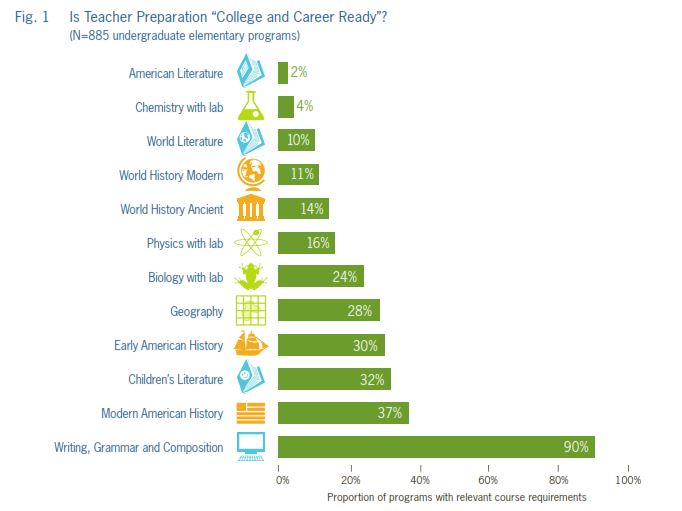In Teacher Prep Review 2014, NCTQ called out the “capacity gap”. This is the gap between the increasingly rigorous college and career ready
standards required in classrooms and the content mastery of
these same standards by teacher candidates upon completion of a teacher prep program. As a nation we are
calling for our students to be competitive with their international peers, but, can our teachers provide adequate instruction to help our
students reach mounting expectations?

As a student currently in a teacher preparation program, I
can vouch that these increasingly rigorous standards adapted across the nation
are referenced in classes and lectures are devoted to
their content. But I can also say, not enough is done to make sure we (teacher
candidates) know the knowledge we
expect our students to master.
It was 2010, I was just 16 years old, sitting in a stuffy
classroom learning AP US History in the period just after lunch. This was my most
cherished 51 minutes of the day; it was where I discovered I wanted to become a history teacher. I loved the class, received full AP credit for the course and, upon
coming to college, that score counted for both
general US History courses required of Secondary Education – Social Sciences
majors. At 18, I thought 6 free credits was a gold mine, but at 22 I sit here
about to enter the classroom to teach US History and I realize that the last
time I “mastered” this content, I was the same age as my future students.
To my university, I fulfilled the requirement. To my
students, if I don’t seek out this information elsewhere, I will fail them.
Imagine – your son’s calculus teacher hasn’t taken calculus
since she was 18. Your daughter’s chemistry teacher last took the class at 17.
Feeling confident?
This is the capacity gap in action.
No one is arguing that holding students to a higher level of
rigor is a mistake. But if we don’t start holding teacher candidates
accountable for mastery of content, we not only set them up for failure, but
we also provide our children, the future of this nation, with lessons based on
last night’s Wikipedia search and generalized textbook information.